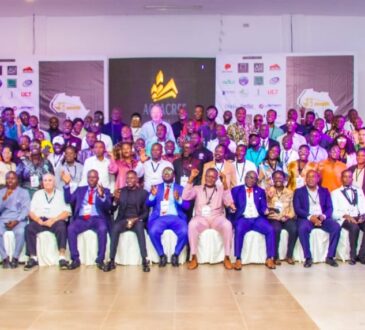
Countries implementing digital identity could unlock value equivalent to 3 to 7 percent of GDP, says statistics and data experts at the 12th StatsTalk-Africa Webinar in Addis Ababa Ethiopia on 20 February 2024.
The monthly webinar was organized by the African Centre of Statistics (ACS) of the United Nations Economic Commission for Africa on the theme, “Building Inclusive National Identity Systems – Inter-linking digital identity and legal identity”
Mactar Seck Chief of Technology & Innovation at ECA said Digital ID can create economic value for countries primarily by enabling greater formalization of economic flows, promoting higher inclusion of individuals in a range of services, and allowing incremental digitization of sensitive interactions that require high levels of trust.
“Analysis of digital ID Systems indicates that individual countries could unlock economic value equivalent to between 3 and 13 percent of GDP in 2030 from implementing digital ID programs,” said Mr Seck while making a presentation on Digital Identity for Citizens at the webinar.
A digital ID is an identity verified and authenticated to a high degree of assurance over digital channels, unique, and established with individual consent. Unlike a paper-based ID, a digital ID can be authenticated remotely over digital channels.
The main attributes of Digital ID are Verification and authentication, Data Privacy & Security, Standardization & Interoperability, Unique identity, Voluntary & Consent, and Minimum Data Capture.
“We can distinguish between basic digital ID, which enables verification and authentication, and digital ID with advanced applications. Advanced Digital enables storing or linking additional information and gives higher economic benefit,” explained Mr Seck.
The StatsTalk session aimed to demystify concepts, processes, divergences, and developments in digital identity and legal identity systems to address the concerns about privacy, security, and the potential for identity theft or misuse of personal information.
Oliver Chinganya, Director, of the African Centre of Statistics at ECA said formal identity systems are critical for making sure all citizens are treated fairly by their governments. A “legal identity for all” is one of the United Nations Sustainable Development Goals and aims to provide legal identity for all, including birth registration, by 2030. However, challenges such as lack of infrastructure, political instability, and issues related to privacy and inclusivity remain to be tackled in many countries.
“Digital Identity serves to authenticate and authorize individuals in various online environments like online banking, e-commerce, health care, and social security transfers,” said Mr Chinganya.
“As technology evolves new methods of developing and managing digital identity are emerging including systems that prioritize control over personal data.”
Mr Seck noted that Digital ID can also unlock noneconomic value not captured through quantitative analysis. Digital ID can also promote increased and more inclusive access to education, healthcare, and labour markets; can aid safe migration, and contribute to greater levels of civic participation.
However, he said challenges persist in Implementing Digital IDs in Africa: these include limited infrastructure, low digital literacy, and lack of trust in government institutions.
In moving forward, he said it is crucial to take into account the local context and ensure that digital ID systems are tailored to the unique needs and challenges of specific regions within Africa. More emphasis on inclusivity, accessibility, and ongoing capacity building will contribute to the sustained success of digital ID initiatives.
“The successful implementation of digital ID systems requires a comprehensive and collaborative approach, considering the specific needs and challenges of each African country,” said Mr. Seck, adding that regular assessments and adjustments based on feedback and changing circumstances will contribute to the long-term success of the initiative.
He noted that collaboration and commitment between governments, international organizations, and the private sector is essential for the successful implementation of Digital ID Frameworks.
Making a presentation on Legal Identity in Africa, William Muhwava Chief, of Demographic and Social Statistics indicated that in Africa about 542 million people do not have identity cards. Of this number, around 95 million children under five have never had their births recorded, and 120 million children do not have a birth certificate.
“Everyone has the right to be recognized as a person before the law; However, without proof of legal identity, individuals are not able to acquire a nationality and are rendered stateless,” said Mr Muhwava.
He said that to ensure everyone is legally identified, countries should advocate for more political will and commitments to provide and fund legal identity as a public good and service, and advocate for adequate funding through public funds for the implementation of civil registration and national identities.
He stressed the need for member states to put in place institutional capacity within relevant line ministries and departments to better, plan, budget, advocate, and scale up delivery of legal documents.







